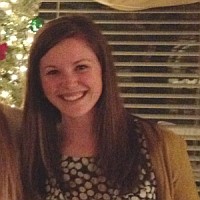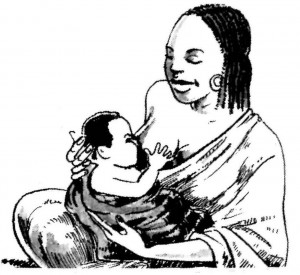The Dokotoro Project continues to make progress–despite the holidays and travel, a lot has happened in the last month! Here’s an update from our monthly Steering Committee meeting held during the first week of January.
 First off, we are delighted to welcome Jenna Lohmann to the committee. Jenna will be helping recruit and manage volunteers as our new Volunteer Coordinator. Like several of us, Jenna was a Mali Peace Corps Volunteer, serving as as a water and sanitation volunteer in the Koulikoro region from 2011-2012. She now works as an environmental scientist for a consulting firm in Oakland, California. Welcome Jenna! (To volunteer, drop her a line at jenna@dokotoro.org!)
First off, we are delighted to welcome Jenna Lohmann to the committee. Jenna will be helping recruit and manage volunteers as our new Volunteer Coordinator. Like several of us, Jenna was a Mali Peace Corps Volunteer, serving as as a water and sanitation volunteer in the Koulikoro region from 2011-2012. She now works as an environmental scientist for a consulting firm in Oakland, California. Welcome Jenna! (To volunteer, drop her a line at jenna@dokotoro.org!)
Translation and Layout
A few issues have come up regarding our plans to produce English and French-language back-translations of the Bambara edition of Where There Is No Doctor. Hesperian staff want to make sure that the information that is published stays up to date, and worry that producing an alternate English-language edition could result in an edition that is hard to keep updated. Regarding the French-language edition, this book is copyrighted (and sold) by the Senegalese NGO ENDA. We received permission to reuse the material in the book via an email from an ENDA staffer, but may need more explicit permission to distribute a new edition of the book in French. So all of this is TBD for now. It is possible that we may produce something, but that it will only be available on request; i.e. not printed or posted publicly on the internet.
We are grateful to ENDA, as we are using many of their illustrations and providing the French-language text to our translators. However, we have found that the book has several flaws. Some of the medical information, particularly concerning medicines, appears to be about 20-30 years old, and is out of date. Furthermore, the writing has an occasional paternalistic and sexist tone. Not only is this particularly unwelcome, but it is a stark contrast to the writing in the English text by the Berkeley-based Hesperian Foundation.
Many of the graphics needed small fixes. Some images needed de-specking and to have the line-work cleaned up, a result of the scanning process. Others are more subjective, like fixing illustrations of people with mysteriously missing hands. Ruth has been steadily making all of these fixes, and they look wonderful. Thanks Ruth!

Illustration from the Introduction of “Là Où Il n’y a Pas de Docteur” on the benefits of breastfeeding infants
Matt reported that he posted many new files to the website on the new Downloads page: Bambara Chapters 18 and 20, and the (un-edited) PDF chapters for the entire French-language book from ENDA. Zach can finish up translating the English insertions to Chapters 18 and 20 by next month. Matt is working on re-formatting Chapter 18 in MS Word.
Administration and Finance
We are starting a new contract with the team which is now based on per word 100 CFA per word (approx. 10 cents for translation and 10 cents for two sets of edits). We also agreed to change the upfront and final payments schedule from 50/50 to 60/40. The new contract covers the Introduction, which includes a long section on “Words to the Health Worker,” and is about 50 pages long.
Matt worked with the head translator via email to develop a style sheet for the project. Compliance with the style sheet is in the new contract. The style sheet is meant to cover issues of usage and punctuation that were inconsistent in the last set of translations, perhaps due to having multiple authors. For example, should we use French-style punctuation, where there is a space before many punctuation marks, or English-style, where the space is omitted? How should spelling be standardized? Etc.
Fundraising
We discussed launching a campaign for individual donations. We need about $25,000 to pay for translation and editing, and we’ve raised about $8,600 to date. We are still planning to solicit grants from charitable foundations, but we’re optimistic that we can go far with donations. We haven’t made a concerted effort (aside from announcing the fundraising party in November), but a lot of people have already made donations to us in person or on the website. Clearly, a lot of people are excited by the project and believe in this effort. The Mali RPCV community in particular has been very generous.
We’re planning to launch an online fundraising campaign beginning around February 14, and lasting through the end of March. We’ll be looking for lots of people to act as “captains,” who can help us contact friends, family, and others who care about Mali. Please be in touch if you can help! Or can make a donation!
Website/Social Media
We would really like to have the basic information on the website available in French. This is especially important as we reach out to more people in Mali as collaborators, so they can check us out and get background information. Zach will work on this next month, doing the basic “pages” only; i.e. not the news items (blog posts). For now, we have a widget that lets readers translate our pages into multiple languages, including French, using Google Translate. It’s far from perfect, but serviceable.
Outreach and Volunteers
We have lots of things we could use help with–editing in English and French, graphics and design, fundraising, etc. We are currently using a spreadsheet to keep track of the 12 volunteers who have contacted us, and what they’re working on, although only 2 or 3 have really done much.
We’re planning a work party, which might get people out to help. We have planned it for Sunday 1/27, from 12-4pm. There was mild concern that this might interfere with football viewing. Turns out the Pro Bowl starts at 4 pm Pacific. We can all go to a bar with a TV afterward if people want. Our goal is to make it fun and convivial and get a lot of good work done!
Matt gave a run down of a handful of new volunteers who seem promising. Mostly, he’s tried contacting a few small NGOs that do volunteer health work in Mali. These are the people who can tell us how the information and advice in the book needs to be adapted for a Malian audience. In particular, we’ve talked to Medicine for Mali, Mali Health Organizing Project, and NYU’s Global Public Health Action Project (GPHAN).
